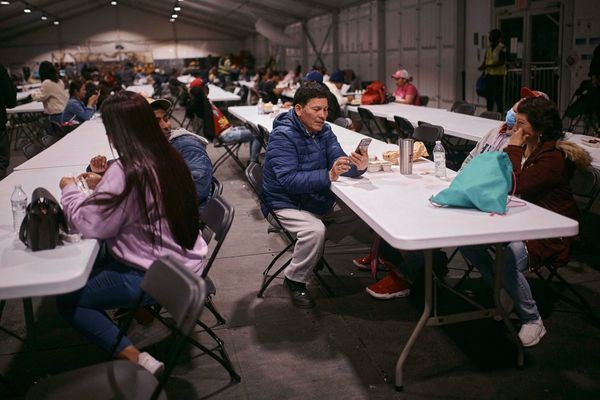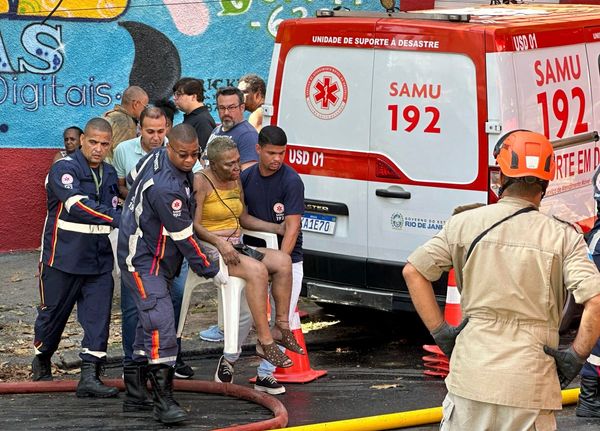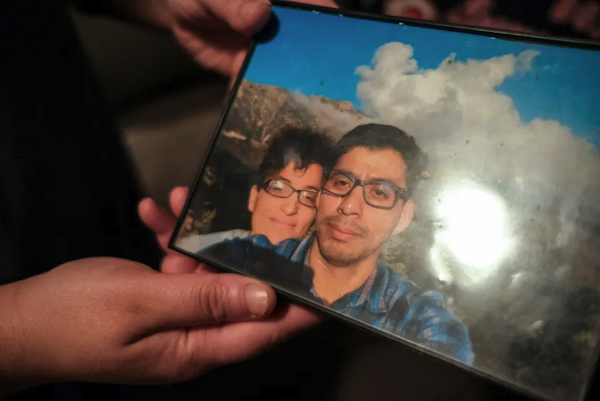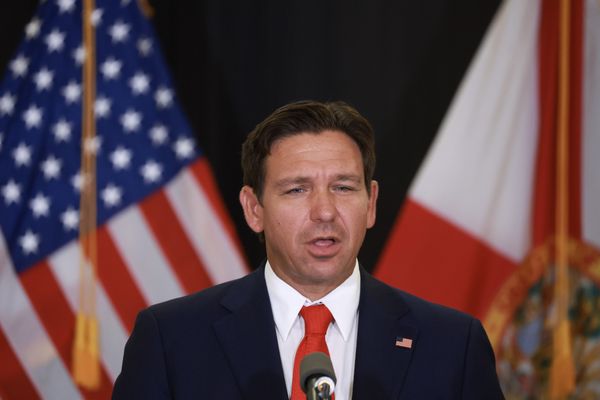Thousands of Ukrainians have left the country and as many as 100,000 are internally displaced after fleeing their homes following the attack ordered by Vladimir Putin, the UN refugee agency has said.
Videos and photos on social media show lines of cars moving out of cities and heading west, as well as an increase of people on foot near the southern and western borders.
The United Nations refugee agency said on Thursday that the situation was quickly deteriorating after Russia’s invasion, estimating that several thousand had already fled with more expected to follow. It appealed to neighbouring countries to keep their borders open to people seeking a safe haven.
“We have already seen reports of casualties and people starting to flee their homes to seek safety,” said Filippo Grandi, the UN high commissioner for refugees.
At the Luzhanka border crossing with Hungary in western Ukraine, hundreds of cars waited in a queue snaking more than 2 kilometres back from the border on Thursday afternoon. People said they had been waiting over six hours in line to cross.
A steady stream of people crossed on foot, carrying suitcases and holdalls stuffed with belongings. Many were Ukrainians from the Hungarian minority that live in the west of the country, and said they were traveling to stay with relatives for a few days in the hope the danger would pass.
Others had come from other parts of Ukraine and planned to drive on to Western Europe. “The people who have money are leaving,” said one of the customs officials at the post. He said over 1,500 people had left through the crossing by 4pm on Thursday, as opposed to just a few hundred on a normal day.
One 19-year-old man from the town of Svyalava said he had left both because he was scared of Russian assault and of potentially being called up to the Ukrainian army.
“My brother lives in Hungary and I’ll stay with him as long as it takes,” he said, waiting at the border post. He asked not to use his name. Others also said they were fleeing before receiving army call-ups.

People carrying luggage and accompanied by children crossed into the Polish city of Medyka, and lines of cars stretching for miles were reported on the approach to Ukraine’s border with Moldova.
For weeks, central European countries on Ukraine’s western border have been making preparations for a potential influx of millions of refugees. Authorities in the countries next to Ukraine have already identified border crossings through which people can leave the country by land, such as Vyšné Nemecké in Slovakia, Záhony in Hungary, Siret in Romania, and Palanca in Moldova.
Maia Sandu, the president of Moldova, said on Thursday there was an increase in traffic flow on the border.
Poland is preparing a train, with medical equipment, to transport wounded civilians from the Ukrainian border to Polish hospitals, said the country’s health minister. “We are preparing a sanitary train with full rescue service and medical equipment to transport the injured,” said Adam Niedzielski.
“This solution was created completely from scratch and, so far, has not been used in Poland. At the same time, we already have a list of 120 hospitals throughout the country to which victims may go. In total, we estimate at the moment that it would be possible to admit several thousand patients.”
Poland, in particular, has been preparing for various scenarios, including a wave of up to a million people fleeing Ukraine, said Maciej Wąsik, the deputy interior minister.
Poland is already home to about 2 million Ukrainians, many of whom moved after the 2014 conflict, and they have taken advantage of a relatively easy scheme to gain work permits. The government has said it is planning to house Ukrainian refugees in hostels, dormitories and sports facilities.

A few days ago, local authorities in the countries bordering Ukraine were asked to indicate the list of accommodation facilities for refugees, the number of people it would be possible to accommodate, the costs involved and the timeframe for the adaptation of buildings.
The ground floor of the exhibition centre in the south-eastern Polish city of Rzeszów has been equipped to receive people who may flee Ukraine, about 30 miles to the east.
Germany has said it will offer support to countries in eastern and central Europe, especially Poland, facing an influx of refugees. German media have cited estimates that between 200,000 and a million people may flee to the EU from Ukraine in the event of a war.
“We will offer massive support to the affected states – especially our neighbour Poland – in the event of large refugee movements,” the interior minister, Nancy Faeser, said in a statement, adding she had been in touch with the Polish government and the European Commission.
Franziska Giffey, the mayor of Berlin, told news outlet RBB 24 that the German capital was preparing for the arrival of refugees. “For next week, we have set ourselves the goal of discussing concrete implications, what preparations we can make, especially in the event of people fleeing this situation,” Giffey said.
Other countries in Europe have offered support to countries in eastern Europe in case of a wave of refugees leaving Ukraine.
António Costa, the prime minister of Portugal, said potential refugees from Ukraine were welcome in the Iberian country, home to a large Ukrainian community. “Ukrainian citizens who have family, friends and acquaintances here are welcome in Portugal,” Costa said, promising to facilitate the issuance of entry visas.







